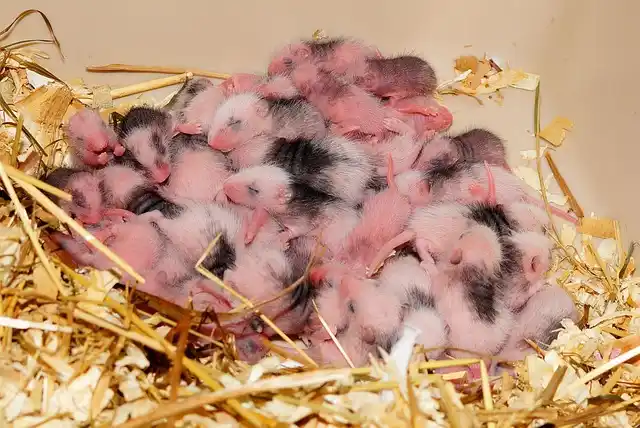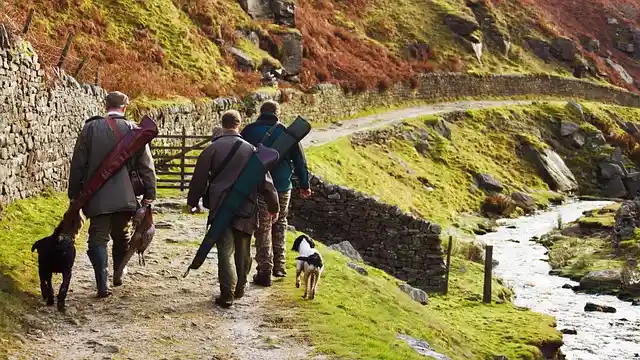How is hunting good for the environment? Proven Benefits!
Hunting is good for the environment as it helps control animal populations and ensures ecological balance. Hunting is a topic that often sparks controversy and emotional debates.
However, when examining the impact of hunting on the environment, it becomes clear that it can play a beneficial role. With the ever-increasing human population, the need to manage animal populations becomes crucial. Hunting, when carried out responsibly and sustainably, helps control the numbers of certain species, preventing overpopulation and its subsequent negative effects.
By doing so, it contributes to maintaining ecological balance and protecting habitats. Furthermore, hunting promotes wildlife conservation and provides financial support for conservation efforts through licensing fees and taxes on hunting activities. Although often overlooked, the role of hunting in preserving biodiversity and protecting the environment should not be underestimated.
Table of Contents
Conservation And Population Control

Hunting is beneficial for the environment as it helps regulate wildlife populations and prevent overgrazing and habitat destruction that can disturb natural ecosystems. By hunting, the population of certain species can be managed to ensure that it does not exceed the carrying capacity of their habitat.
This helps maintain a balance in the ecosystem as it prevents overcompetition for resources and enables other species to thrive. Additionally, hunting can control the population of herbivores, reducing their impact on vegetation and preventing overgrazing, which can lead to habitat loss for other species.
Overall, hunting plays a significant role in conservation and population control, contributing to the health and sustainability of our environment.
Economic Contribution
Hunting has a positive impact on the environment through its economic contribution. Hunting generates revenue for conservation efforts, aiding in the protection of land and wildlife habitats. Additionally, hunting tourism supports local economies by attracting visitors and stimulating local businesses.
This economic boost can have ripple effects, benefiting communities near hunting areas. Furthermore, hunting promotes sustainable land and wildlife management practices. Through hunting, excess populations of certain species can be controlled, preventing imbalances in ecosystems. Hunters contribute to critical wildlife management efforts, ensuring the welfare of both hunted and non-hunted species.
Overall, hunting plays a crucial role in conserving the environment and supporting local economies, making it a valuable tool in environmental sustainability.
Ethical And Sustainable Practices
Hunting, when practiced ethically and with sustainability in mind, can actually benefit the environment in various ways. By promoting the responsible use of natural resources, it ensures that land and wildlife are managed properly and not overexploited. Hunters are encouraged to follow ethical hunting practices and prioritize safety, resulting in the protection of both the animals being hunted and those living in their habitat.
Additionally, hunting helps fund vital conservation research and education programs, as many hunting licenses and fees contribute to wildlife management initiatives. This financial support allows for the preservation and restoration of ecosystems, benefiting not only the targeted species but also the overall biodiversity of the region.
Hunting, when done responsibly, can play a role in maintaining balanced ecosystems and contributing to long-term environmental sustainability.
Frequently Asked Questions On How Is Hunting Good For The Environment
What Does Hunting Do To The Environment?
Hunting affects the environment by disrupting ecosystems, reducing biodiversity, and impacting wildlife populations.
Is Hunting Helping On The Environment?
Yes, hunting can help the environment by managing wildlife populations and promoting conservation efforts.
How Does Hunting Benefit Wildlife?
Hunting benefits wildlife by maintaining balanced populations, controlling diseases, and funding wildlife conservation.
What Are All The Benefits Of Hunting?
Hunting provides physical activity, connection with nature, food sourcing, and wildlife management.
Conclusion
Hunting, when properly regulated, can have beneficial effects on the environment. By managing animal populations, hunters play a crucial role in maintaining a balance between species and their habitats. The practice helps prevent overpopulation, which can lead to resource depletion and damage ecosystems.
Additionally, hunting provides economic incentives for wildlife conservation and habitat preservation. Fees from hunting licenses and equipment sales contribute to funding conservation efforts, ensuring the long-term health of ecosystems and species. Moreover, hunting encourages a deep connection to the natural world, fostering a sense of responsibility and stewardship among hunters.
It is important, however, to emphasize the importance of sustainable hunting practices and ethical treatment of animals. By adhering to regulations and promoting responsible hunting, we can continue to reap the benefits of hunting for the environment while preserving our natural heritage for future generations.
Hi I’m Stanley Boyd, a hunter and lover of mother nature. I’m also a strong supporter of responsible gun ownership. I have a strong interest in hunting and firearms, and I’m excited to share my experiences and knowledge with kindred spirits.



